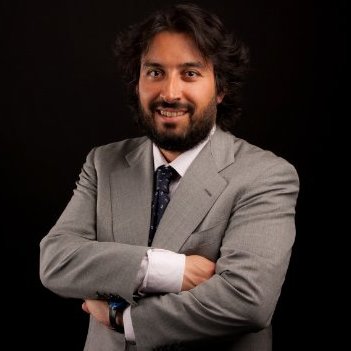Population Europe: On July 11th, we observe World Population Day – a time to reflect on population trends and related issues. As the President of the European Association for Population Studies (EAPS) and as the new President of Population Europe’s Council of Advisors, what would you say are the biggest challenges for future demographic research activities in Europe?
Francesco Billari: Studying population is challenging per se – but the great risk is the dispersion of knowledge due to lack of research planning. When dealing with a specific issue, be it population growth or decline, changes in fertility and longevity, or migration, it is crucial that scholars use the best scientific knowledge and evidence that is available. This means that research on population cuts by definition across traditional subdivisions in scientific disciplines, but also that it needs well-planned data collection. One cannot understand population without funding demographic research and the collection of data on population. The challenge is to make policy makers and funders aware that research on population needs a specific treatment. First, as it cuts across traditional disciplines, incentives need to be put in place for institutions (e.g., universities) that are structured following these disciplines. Inter-disciplinary demographic research centers are also a key, although not exhaustive, answer to this challenge. Second, the attention to funding data collection on individuals, households and families, i.e. the scientific infrastructure on which research on population is based upon, has to be similar to the attention that is geared towards funding infrastructures in hard sciences.
PE: What population trends will be most relevant in the coming years for European societies?
FB: I see potential increasing divergence in population trends in Europe. Societies that are doing well economically will do increasingly ‘well’ from a demographic perspective, i.e. with sustained rises in longevity and balanced fertility and immigration that ensures that population change is not abrupt. To simplify, North and West. Societies that are not doing well risk embarking on less sustainable trajectory of population changes, with challenges to the now record longevity of Southern Europe, potential low fertility and emigration, in both South and East. Whether after a period of divergence, some more convergence will appear is not entirely clear now.
PE: Do you think that social inequalities in Europe will grow? Can we foresee how this will affect future generations?
FB: Following on the previous question, social inequalities might grow across societies, unless policies are geared towards more integration. If the trend continues the risk is to threaten the sustainability for the future of a more united Europe. A fragmented Europe, from the population perspective, will become a union of dwarves.
PE: Do you have the impression that policy makers and governments have realised the challenges we are facing?
FB: When I look at documents and speak to policy makers, I think challenges are clear in their minds. But those I meet are likely to be among the most aware. Population issues are tricky from the political point of view: family, migration, expenditure on health are topics that tend to divide rather than unite. Scholars need to provide hard evidence and great policy makers and government will have to try to avoid populism when thinking about populations.
PE: Within the Horizon 2020 strategy, the European Commission set out the new EU Framework Programme for Research and Innovation running from 2014 to 2020. Will this change funding opportunities for demographic research?
FB: Frankly speaking, I hope so. This is badly needed, also to avoid inequality in funding across societies, and in particular a decreased opportunity to study societies in which the problems are the most pressing.
PE: Do you think European politics has adopted the right course of action with this flagship initiative?
FB: For the moment I am very positive, although we are still waiting for the ‘further particulars’, which will be crucial.

Francesco Billari is Professor of Sociology and Demography, and Head of the Department of Sociology at the University of Oxford. He is currently the President of the European Association for Population Studies (EAPS), as well as founding member and, since June 2013, President of the Council of Advisors of Population Europe.
Interviewer: Insa Cassens/Population Europe